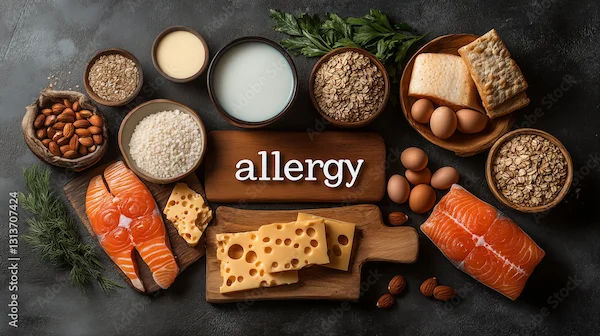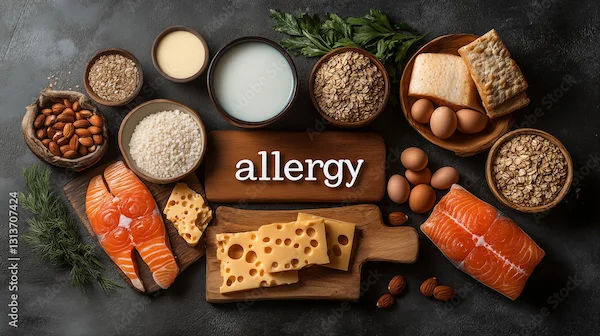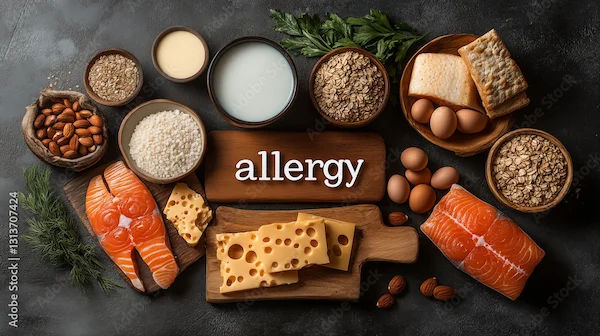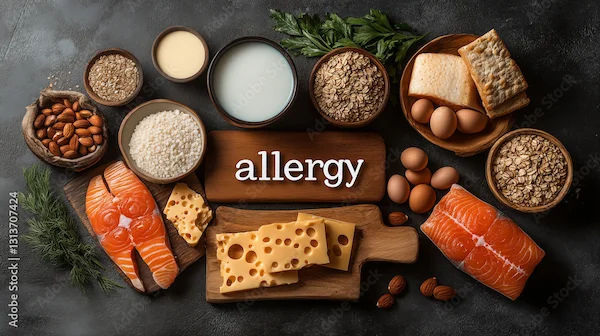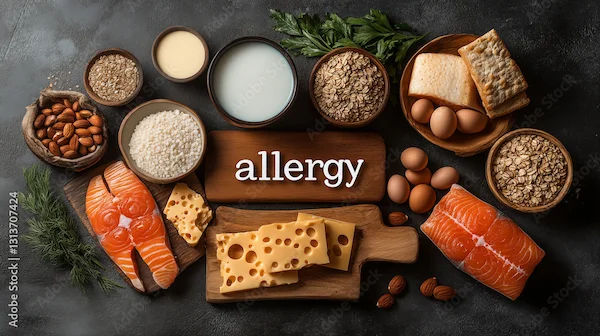Food Allergies and Their Symptoms
Learn about common food allergies and their symptoms, including how to identify allergic reactions, manage triggers, and seek appropriate treatment to ensure safety and well-being.

Written by Dr. J T Hema Pratima
Reviewed by Dr. Rohinipriyanka Pondugula MBBS
Last updated on 13th Aug, 2025

Introduction
Food allergies can be confusing and sometimes scary, especially if you or a loved one experiences them. Understanding what food allergies are, their symptoms, and how to manage them can make a big difference in staying safe and healthy.
What Are Food Allergies?
A food allergy happens when your immune system mistakenly identifies a harmless food protein as a threat. In response, your body releases chemicals like histamine, leading to allergic reactions. These reactions can range from mild to severe and, in rare cases, life-threatening.
Unlike food intolerances (which usually cause digestive discomfort), food allergies involve the immune system and can affect multiple parts of the body, including the skin, respiratory system, and heart.
Common Food Allergens
While any food can cause an allergy, some are more likely to trigger reactions. The most common food allergens include:
Milk
Eggs
Peanuts
Tree nuts (almonds, walnuts, cashews)
Soy
Wheat
Fish (salmon, tuna)
Shellfish (shrimp, crab, lobster)
Children are more prone to allergies from milk, eggs, peanuts, and wheat, while adults often react to shellfish, tree nuts, and fish.
Health topic carousel:
Doctor's speciality: Immunology
Text: Consult a Top Immunologist
Symptoms of Food Allergies
Food allergy symptoms can appear within minutes to a few hours after eating the trigger food. They may affect different parts of the body:
Mild to Moderate Symptoms
Skin reactions: Itching, hives, redness, or swelling (especially around the mouth).
Digestive issues: Nausea, vomiting, stomach cramps, or diarrhea.
Respiratory problems: Sneezing, runny nose, coughing, or wheezing.
Mouth/throat discomfort: Tingling, itching, or swelling of the lips, tongue, or throat.
Severe Symptoms (Anaphylaxis)
Anaphylaxis is a medical emergency and requires immediate attention. Signs include:
Difficulty breathing due to throat swelling.
A sudden drop in blood pressure (leading to dizziness or fainting).
Rapid pulse.
Loss of consciousness.
If you or someone experiences these symptoms, use an epinephrine auto-injector (if available) and call emergency services immediately.
Causes and Risk Factors
Food allergies can develop due to:
Genetics: If allergies run in your family, you may be at higher risk.
Age: Children are more prone, though some outgrow allergies (like milk or egg allergies).
Other allergies: People with eczema, asthma, or pollen allergies may have a higher risk.
Environmental factors: Early exposure to certain foods (or lack of exposure) may influence allergy development.
Diagnosing Food Allergies
If you suspect a food allergy, consult a doctor. Diagnosis may include:
Medical history review (discussing symptoms and reactions).
Skin prick test (tiny amounts of allergens are applied to the skin to check for reactions).
Blood tests (measuring allergy-related antibodies).
Oral food challenge (supervised consumption of suspected allergens in a controlled setting).
If you need allergy testing, Apollo 24|7 offers convenient consultations and diagnostic services. Book an appointment today for expert guidance.
Health topic carousel:
Lab Test: Allergy Test
Text: Get Your Health Assessed
Managing Food Allergies
While there’s no cure for food allergies, proper management can prevent reactions and keep you safe.
1. Avoid Trigger Foods
Read labels carefully (foods may contain hidden allergens).
Inform restaurants about your allergy when dining out.
Be cautious with cross-contamination (shared utensils or cooking surfaces).
2. Carry Emergency Medication
Epinephrine auto-injector (EpiPen) is essential for severe allergies.
Antihistamines (like Benadryl) can help with mild reactions but are not a substitute for epinephrine in emergencies.
3. Educate Family and Friends
Ensure those around you know about your allergy and how to help in an emergency.
4. Consider Allergy-Friendly Diets
Work with a nutritionist to ensure balanced meals while avoiding allergens.
Explore substitutes (e.g., almond milk instead of cow’s milk).
5. Stay Updated on Treatments
Oral immunotherapy (OIT) is an emerging treatment where small, controlled amounts of allergens are given to build tolerance (under medical supervision).
When to See a Doctor
Consult a healthcare provider if:
You experience unexplained allergic reactions after eating.
Symptoms worsen over time.
You need help managing or diagnosing a food allergy.
Apollo 24|7 provides expert consultations with allergists who can help diagnose and manage food allergies effectively. Schedule an appointment today for personalized care.
Final Thoughts
Living with food allergies requires awareness and preparation, but it doesn’t have to limit your quality of life. By recognizing symptoms, avoiding triggers, and having an action plan, you can stay safe and healthy. If you suspect a food allergy, don’t hesitate to seek medical advice. Early diagnosis and proper management can make all the difference.
Health topic carousel:
Doctor's speciality: Immunology
Text: Consult a Top Immunologist
